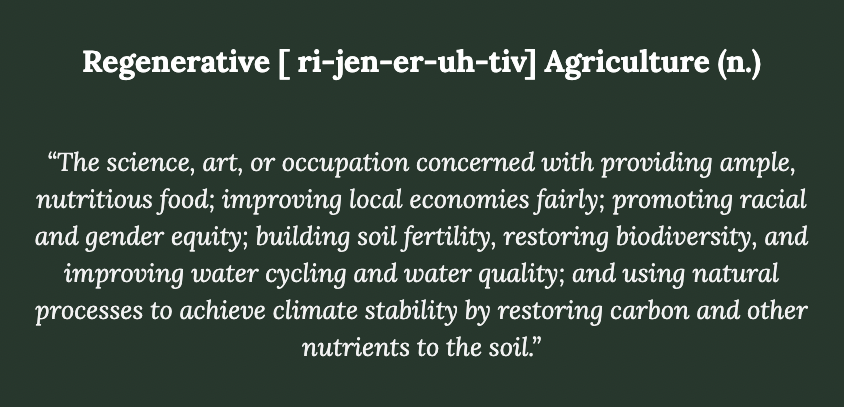Social Regeneration

10/29/2021
By: Kevin Alexander Watt and Megan Shahan

 Human beings are an integral part of our planet, inextricably linked with the natural world. This simple truth is often overlooked in our modern society, at a critical time where human activities are the primary drivers of change. Thus, our actions must be intentionally designed to regenerate. A truly regenerative food system must seek to not only be environmentally and economically regenerative, but socially regenerative as well. As we work to grow a food system that nourishes, supports, and inspires us all, we are guided by yet another simple truth: all humans deserve respect, equitable access, and a seat at the table.
Human beings are an integral part of our planet, inextricably linked with the natural world. This simple truth is often overlooked in our modern society, at a critical time where human activities are the primary drivers of change. Thus, our actions must be intentionally designed to regenerate. A truly regenerative food system must seek to not only be environmentally and economically regenerative, but socially regenerative as well. As we work to grow a food system that nourishes, supports, and inspires us all, we are guided by yet another simple truth: all humans deserve respect, equitable access, and a seat at the table.
Food is the foundation of human culture. Food nourishes us. Food connects us in community to one another and to our planetary life support system. Any food system that violently or apathetically exploits, excludes, and devalues human beings (and the precious natural resources upon which we all depend) is dangerous and unsustainable.
It is true that the environmental benefits of regenerative agriculture can do much to mitigate climate change and ecological degradation. It is also true that the economic benefits of regenerative agriculture could usher in a rural renaissance so that the stewards of our lands who have consistently been exploited by big food companies and all too often been left behind by our country’s economic growth could be justly compensated for the precious ecosystem services they can provide to all people.
However, simply mitigating the economic and environmental harms our current food system has caused (and continues to cause) is not enough. The way we grow and share food influences every part of our society. Therefore, we must take our cues from the natural world and develop a food system rooted in symbiosis—exemplifying how diversity and cooperation create more equitable, productive, and resilient outcomes for us all. Social regeneration begins with simple questions like who has access to food and land, but simple questions can lead to deeply profound transformations.
In that spirit, this month we are delighted to share a wonderful resource to help aid those who are courageously asking these questions. The Ecdysis Foundation has created a growing Database of Under-represented Groups in Agriculture that highlights organizations working towards social regeneration. We highly encourage you to take a look to learn about these organizations and explore how you may be able to engage with them and support their work. Ecdysis also invites you to share organizations that aren’t yet on the list.